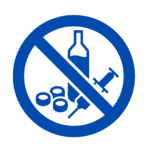Stages of donation

Personal Information
Personal information will be collected and you will be given a donation consent to read and sign.

Small Blood Draw
Before donating, a small blood draw will be taken to ensure you are eligible.

Medical Evaluation
Sampling A sample of your blood is analyzed to check that your cell count is adequate.

Donation
Once the assessment has been approved, you will proceed to the extraction room to collect your donation.

Snack
After the extraction you should rest for a few minutes, drink liquids and eat whatever food is provided to complete your recovery.









